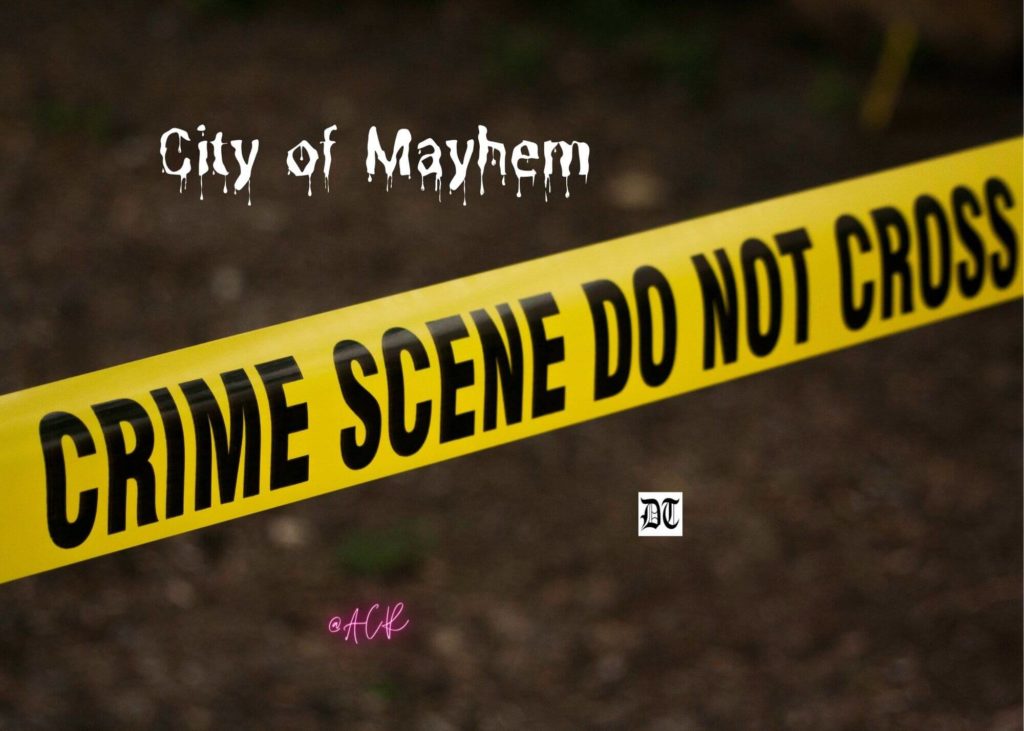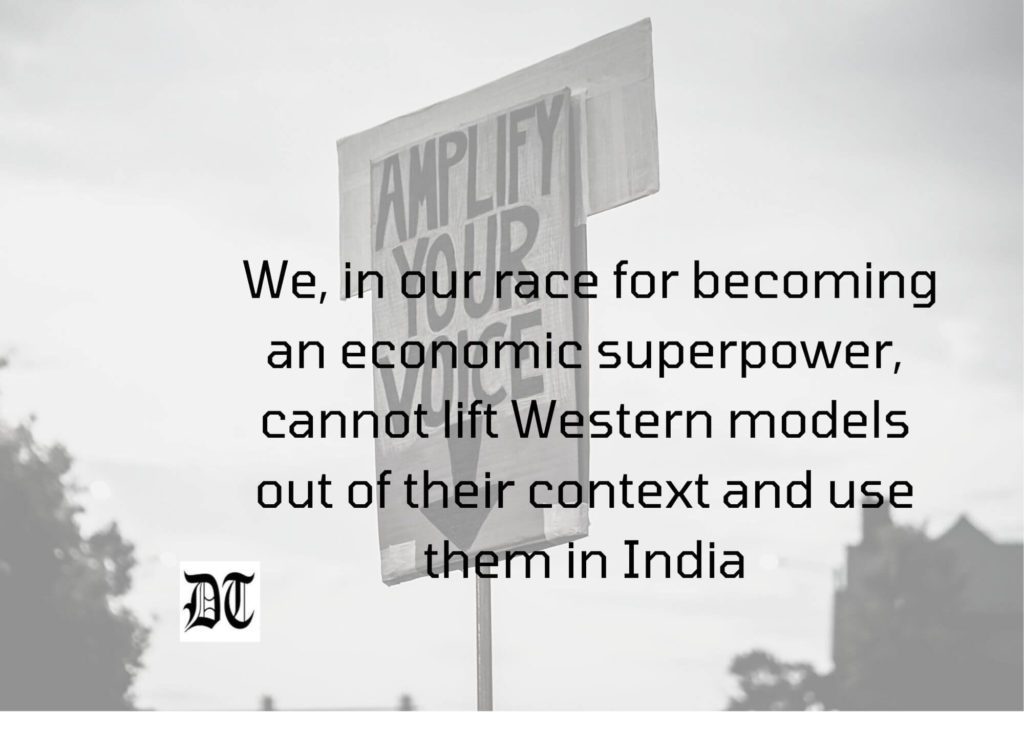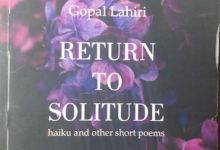Democracy and the nobler values of our Founding Fathers remain challenged as greed, violence and other evil intentions gnaw at the sociopolitical fabric of the society, globally. The uncommon courage of the common man, especially the youth, is the answer. An erudite opinion by Prof. Laksmisree, exclusively for Different Truths.
In these turbulent times when dissent, protestation, or opposition to any rigid monochromatic perspective is reason enough for ruthless authoritarianism, even torture, and imprisonment in many regions of the world today including India, I wish to start with those famous lines of Wordsworth written in 1798 in the Lyrical Ballads as the keynote of this essay: “To her fair works did nature link / The human soul that through me ran/ And much it grieved my heart to think/ What man has made of man”. It is strangely regrettable that not much has changed in terms of human society, even after the lapse of more than three centuries since one of the foremost poets of the world wrote the above, though we continue to boast about Democracy and development in many realms of life, while mayhem continues unabated. The most recent example is the incredible insurrection at the American seat of governance in the Capitol, incited by an anarchist President with an incredible lust for power, at any cost.
Such scenes of the mob or police violence or the abuse of power for throttling truth in India, are drab, somber, and ever repetitive in our daily lives.
This is no stunning scene for us since we Indians remain quite impacted as well as benumbed by such fascist leaders who easily provoke the masses leading to death and destruction, without much ado. Such scenes of the mob or police violence or the abuse of power for throttling truth in India, are drab, somber, and ever repetitive in our daily lives.
Gunshots rend the air as peaceful people flee the ruthless ultras or more appropriately, the extremist politically affiliated brigades of today, who have managed to transform most of the urban and rustic zones of India in Uttar Pradesh, Jharkhand, Bengal, Bihar, and the adjoining areas of other states into killing fields strewn with corpses. An innocuous small-time businessman or a journalist, who refuses to succumb to intimidation or extortion, is shot dead, early in the morning, right in the middle of a busy road in a city, with none to dare raise alarm.
Innumerable rapes and murders are ordinary news items of the day as our soldiers in permanent vigil and combat mode on our borders, continue to die…
Innumerable rapes and murders are ordinary news items of the day as our soldiers in permanent vigil and combat mode on our borders, continue to die due to a lack of leadership and friendly understanding between countries. The streets of Kolkata, Delhi, and other metropolitan centers of India, clamour with the outcries of intellectuals, artists, farmers, migrant labourers, social activists, and large segments of our underprivileged which constitute our civil society, but to no avail. They remain enraged and justifiably protesting the violence, imprisonment at the drop of a hat, loot, brutal murder, rape, and terrorising that continues perpetually among the common people, through this ubiquitous usurpation of the fundamental rights and civilised norms of human society.

The City of Joy often becomes overnight the City of Mayhem with the police out on the streets to protect or perhaps not to protect its hapless denizens. The boundaries of time and space seem to have been totally erased, as we see every day the senseless replay of history in our tragic memories of the 1984 Delhi riots, the 1993 Bombay blasts, the 2002 genocide in Gujarat, the Army patrolling human habitations till date in Kashmir rattled by divisive politics, the police firing innocent farmers who refuse to give up their farmlands for mega-industrial projects like those of the Tatas in Kalinganagar as in other parts of the country, grabbed by politically sustained Corporates, the kidnappings, and killings of innocent children and underprivileged youth, the daylight murders of journalists and academics who stand boldly for rationality and now again the farmer’s agitation and their outcries falling on deaf years. Nothing seems to have really transformed in post-Independence India and many countries of the post-colonial world, except the transitory cycles of power-driven political regimes and the ruthless silencing of voices of freedom, despite the two World Wars, merciless imperialism with the hard lessons of history now in the domains of amnesia.
The list of crimes and insurgencies is endless while we are painfully riddled with the demoniac faces of Neo-Imperialists, politicians, and their corporate stooges…
The list of crimes and insurgencies is endless while we are painfully riddled with the demoniac faces of Neo-Imperialists, politicians, and their corporate stooges with such other public gods across the world, who get horribly mixed up in our collective consciousness. They leave us high and dry while themselves leading secure and cocooned lives far from public service, totally ignorant of the darkness about to engulf them much before they know or can think of the approaching disaster about to annihilate all, regardless.
We are perched on a dangerous precipice with an intimidating bomb ticking away relentlessly in our lives. Kashmir, Syria, Afghanistan, Iraq, Turkey, and even the USA of the just concluded Trump-era or any other part of the world becoming increasingly totalitarian and jingoist, play out similar desolate scenes daily and everywhere in a horribly conflict-ridden stratosphere. We need to take immediate control of our lives and do away with violence and the divisive policies of ‘us’ and ‘them’ since no developed democratic society can flourish in exclusionist pockets of power, affluence, or dominance.
The elusive road to peace seems to have been lost forever in the speedy multiplication of skirmish-zones created shamelessly…
Jharkhand, where I live, is undeniably a microcosm of 21st century India or for that matter, of the developing world at large. The elusive road to peace seems to have been lost forever in the speedy multiplication of skirmish-zones created shamelessly for vested interests and petty power games. The adage of everything being ‘fair in love and war’ has got shockingly altered into what the political masters and cadres flaunt as their belief in ‘everything is fair when one is in power’. We may recall from the quagmire of the tainted chronicles of our recent past that fascism and terrorism are two sides of the same coin and recognise the veracity of Lord Acton’s famous statement, in 1887, that power corrupts and absolute power corrupts absolutely.
At the end of the day, the paradox of speedy economic growth and industrialisation and highly consumerist globalisation, on the one hand, and of the alarming increase of poverty, landlessness, and militancy on the other, stares us blatantly in the eye. Every milestone seems to be pitted against a never-ending void on one side and a bottomless pit on the other. As we see the outcome of a mindless brand of Globalised Capitalism in which the chasm between the rich and the poor is ever-widening and deepening in the developing world, Jharkhand becomes a representative slice of these evolving contradictions. In this part of Eastern India, it is incredible how we experience, see, and feel every day the proximity of affluence with impoverishment, of cultural pluralism with extremism in every form and of the wealth of natural resources, art, and industry interwoven with the bleakness of marginalised lives without any food, drinking water, shelter, electricity, roads, health, or education.
… it was in this virgin terrain that the tribal revolutionary Birsa Munda had raised his voice of moral dissent against British Imperialism.
On November 15, 2020, the nascent state of Jharkhand celebrated its twentieth anniversary, while we witnessed the endless saga of frustrated teachers, unpaid doctors, rebellious students, exploited workers with large segments of our society boycotting the charade of Statehood Day. Ironically enough, it was in this virgin terrain that the tribal revolutionary Birsa Munda had raised his voice of moral dissent against British Imperialism. Despite its quintessential wealth of natural resources and the legacy of a rich, traditional cultural aestheticism in this part of India, the greenery seems to have vanished forever. In the manic speed for development, land-acquisition from poor

Farmers without a fair rehabilitation policy as also meaningless retrenchment have left a sizable population crying out in the dark with hardened minds, empty bowls, and hungry stomachs. Such inconsequential and tattered roadmaps of so-called progress have intensified the crisis to such an extent that turmoil seems to have become an all-encompassing dimension of our lives.
Though our neighbours in Pakistan, Bangladesh, and Myanmar are in the grip of irregular military regimes, China, despite its political ideology, can perhaps, in a certain way, increase our understanding of sustainable development and democratic practices in this part of our world, notwithstanding its shameless expansionism and greed of annexation in all its forms and colours. It is interesting to note that the official China Daily, in its prevalent focus on their new governance philosophy, stated: “The single-minded pursuit of growth and efficiency is out. The new idea is to balance such needs with fairness, ecological well-being as well as people’s feelings”. Though severe inequities prevail to date, as much in China as in India, the enunciation or formulation of such policies may perhaps pave a slender way towards social justice and a more even-handed amalgamation of agriculture and industry and of art and technology.
We, in our race for becoming an economic superpower, cannot lift Western models out of their context and use them in India…
We, in our race for becoming an economic superpower, cannot lift Western models out of their context and use them in India without being sensitised to the larger issues of hardships and problems of manual labour amid our underprivileged majority.
We are all looking or at least should be looking for answers during these tempestuous times. Whether it be the erroneous holy war of ‘jihadis’ or the onslaughts of dictatorial rulers or the rampage of political extremists, we can easily decipher the uncanny links between states and countries which are still under-developed and in the grip of illiteracy, malnutrition, and hunger and those which are totally advanced yet phenomenally disturbed and anarchic.
It is a hard task today to discriminate between the fine lines of the various reasons, principles and practices of violence scourging our lives in varied geo-spaces.
It is a hard task today to discriminate between the fine lines of the various reasons, principles and practices of violence scourging our lives in varied geo-spaces. But one thing is certain – there is an overarching cry for Democracy and a wholesome yearning for peace which perhaps could show us the sunshine-road beyond the dark, bristling jungles. In any case, we know that a black night is always followed by rosy dawn which keeps the hope burning in our hearts. However, the issue is no longer about good or bad governance but about a certain form of cynical apathy and fast-eroding human values in our communities and societies, with a humongous urge for self-aggrandisement and materialism. It is no longer about allowing corrupt leaders to misguide and kill innocent people but about the re-kindling of our own faith, mettle, strength, and positivism to stand up for Truth and Justice, while taking the right step forward, in order to save our world in whatever small or big ways we can.
Sanity and humanity have flown out of our windows and our threatened self-centric worlds have given up, in senseless abandon, our basic social responsibilities. Each one of us is bound to have a certain degree of social awareness and it is the aam aadmi who will and can generate a social revolution for bringing about these outstandingly benign changes to make us a fully prosperous and developed world. We are at the crossroads of a civilisational crisis which perhaps calls for a new beginning. Robert Frost’s daring optimism about exercising choice with full consciousness and deliberation may perhaps give us an inkling of the manner in which to initiate a fresh trail of regenerative activity. Frost had said with full conviction: “Two roads diverged in a wood / I took the less traversed by / And that made all the difference.”
The potency and power to make this difference perhaps lies with the uncommon courage of the common man, especially our vibrant youth.
The potency and power to make this difference perhaps lie with the uncommon courage of the common man, especially our vibrant youth. India is fortunate to be the youngest nation with the oldest culture in the world, with a majority of our population being in their prime, unlike the ‘dying’ Eurocentric nations. With the wealth of our young generation, despite all our odds and ordeals, we believe that we can soon ride on the crest of the 21st century if we are ready never to fail ourselves. To return to Shelley’s buoyant philosophy, we too know that despite the storm and the West Wind “If winter comes can spring be far behind?”.
Our social consciousness (including social responsibility) can really trigger that new awakening against every form of corruption, violence, and ignorant brutality which is so wonderfully portrayed in the Tata Tea advertisement on our TV screens. Here we see an ordinary but alert young man audaciously questioning a tainted, arrogant, and illiterate politician about his ‘qualification and work experience’. The power of the ordinary young man is more than obvious when he puts across his valid query of how this netaji can ever qualify or aspire for the top job of running the nation when he has not done any productive work such as building roads, waterworks, engineering constructions, etc. The message about the power of the people is loud and clear. The ‘Jaago Re, Jaago Re Jaago Re’ refrain in the ad, made by some unusually conscientious and creative ad. man, spells out boldly our opportunity to make a difference by exercising our own choices and deliberations for returning to the road of development through quality thinking and action.
A certain form of civilised revolt from the various segments of our civil society could usher in an era of positive change.
A certain form of civilised revolt from the various segments of our civil society could usher in an era of positive change. The time has come to join our hands and hearts in prayer with those immortal lines of Josiah Gilbert Holland written during the American Civil War:
God give us Men! A time like this demands Strong minds, great hearts, true faith and ready hands. Men whom the lust of office does not kill; Men whom the spoils of office cannot buy: Men who possess opinions and a will Men who have honour; men who will not lie. Men who can stand before a demagogue And damn his treacherous flatteries without winking! Tall men, Sun-crowned, who live above the fog In public duty and in private thinking.
Visuals by Different Truths






 By
By
 By
By